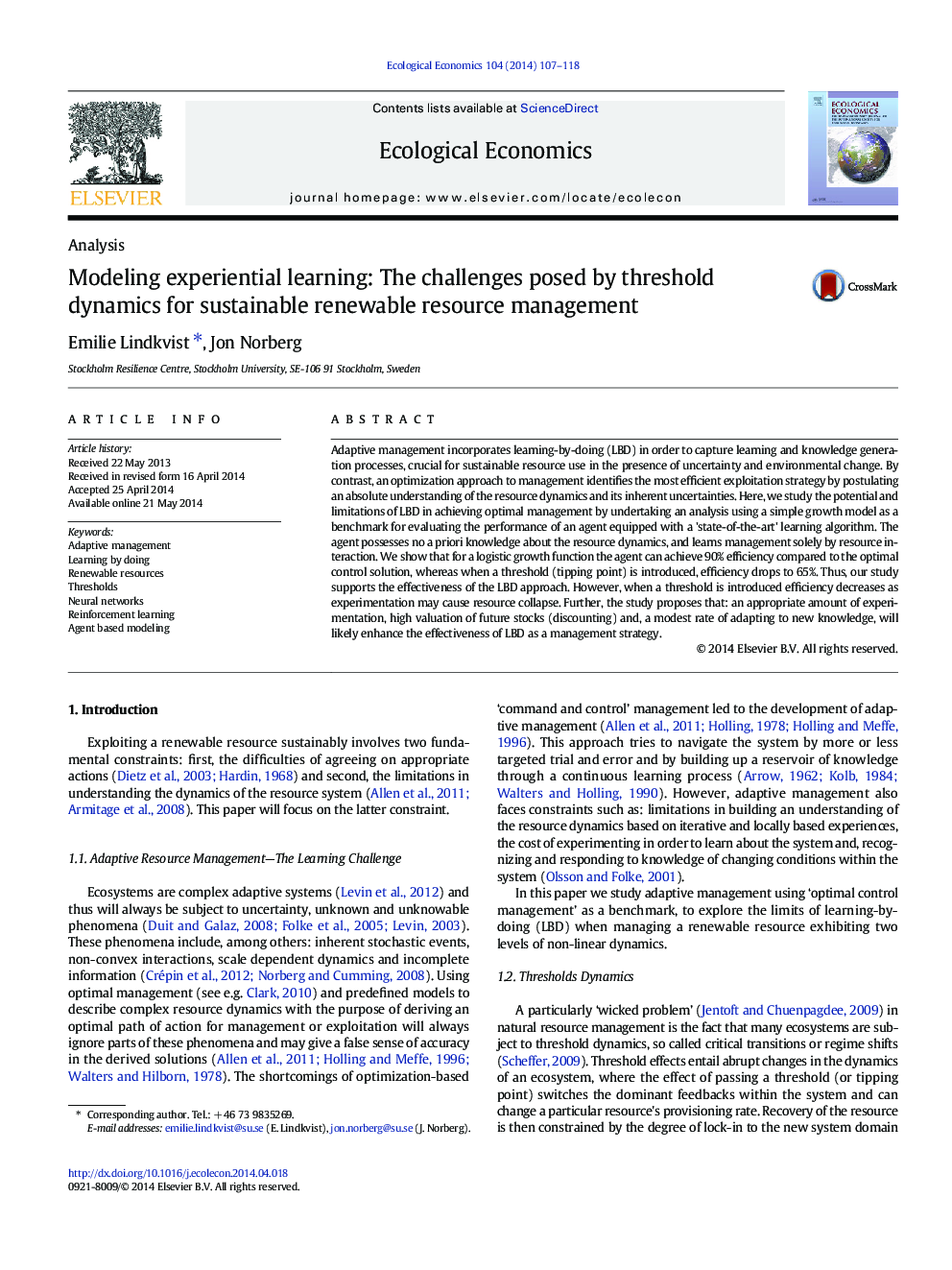| کد مقاله | کد نشریه | سال انتشار | مقاله انگلیسی | نسخه تمام متن |
|---|---|---|---|---|
| 5049554 | 1476375 | 2014 | 12 صفحه PDF | دانلود رایگان |

- We study learning-by-doing when managing a renewable resource with non-linear dynamics.
- We use a computational agent with learning and knowledge generation abilities.
- The processes: learning, experimentation, hindsight and discounting are scrutinized.
- A learning approach can reach 90% efficiency of optimal control management.
- Learning-by-doing is costly when thresholds are present.
Adaptive management incorporates learning-by-doing (LBD) in order to capture learning and knowledge generation processes, crucial for sustainable resource use in the presence of uncertainty and environmental change. By contrast, an optimization approach to management identifies the most efficient exploitation strategy by postulating an absolute understanding of the resource dynamics and its inherent uncertainties. Here, we study the potential and limitations of LBD in achieving optimal management by undertaking an analysis using a simple growth model as a benchmark for evaluating the performance of an agent equipped with a 'state-of-the-art' learning algorithm. The agent possesses no a priori knowledge about the resource dynamics, and learns management solely by resource interaction. We show that for a logistic growth function the agent can achieve 90% efficiency compared to the optimal control solution, whereas when a threshold (tipping point) is introduced, efficiency drops to 65%. Thus, our study supports the effectiveness of the LBD approach. However, when a threshold is introduced efficiency decreases as experimentation may cause resource collapse. Further, the study proposes that: an appropriate amount of experimentation, high valuation of future stocks (discounting) and, a modest rate of adapting to new knowledge, will likely enhance the effectiveness of LBD as a management strategy.
Journal: Ecological Economics - Volume 104, August 2014, Pages 107-118